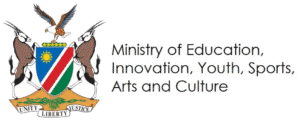Assessing the effect of the intersectionality of gender and socio-economic status on the girl child’s academic performance in Accounting at a secondary school in //Kharas region
Keywords:
intersectionality, socio-economic, patriarchy, academic performance, girl childAbstract
The purpose of this study was to investigate the effect of gender and socio-economic intersectionality on the girl child’s academic performance in Accounting. The study adopted a qualitative research strategy and a Case Study design to collect data from nine learners who were selected through purposive sampling strategy at school A in //Kharas region. The study sought to achieve the following objectives: (a) to determine how gender and socio-economic issues affect the performance of the girl child in the teaching and learning of Accounting at school A in //Kharas. (b) to determine strategies to minimise the effect of gender and socio-economic impact on girls’ teaching and learning of Accounting at school A in //Kharas. The findings of the study indicated that loss of interest in Accounting, absenteeism, high level of patriarchy, lower graduates in Accounting and low representation of girls in accounting classes as some of the effects of gender and socio-economic intersectionality. In addition, the study proposed for strategies to minimise the effect of gender and socio-economic factors which were reducing patriarchy in schools, changing parental expectations, and equal division of house chores as well as promoting equal access to resources. Based on these findings the study recommended that school management empower girls through school-based programs that teach girls confidence and the importance of education to the girl child. The study further recommended that the Ministry of Education, Arts and Culture ensures that the goal of access was not just theoretical but practical so that the girl child might receive the best education.
Downloads
Published
How to Cite
Issue
Section
License
Copyright (c) 2022 MoEAC, National Institute for Educational Development (NIED)

This work is licensed under a Creative Commons Attribution 4.0 International License.






